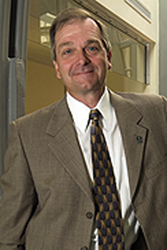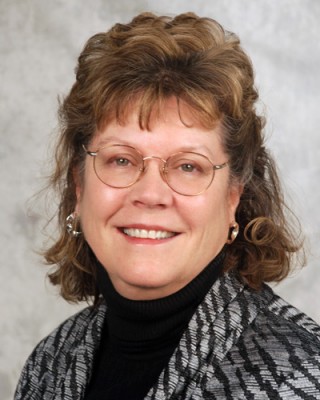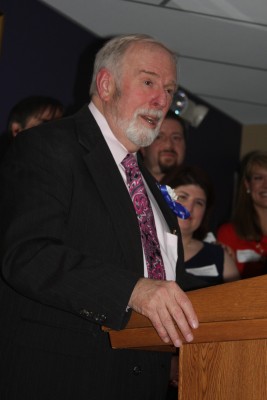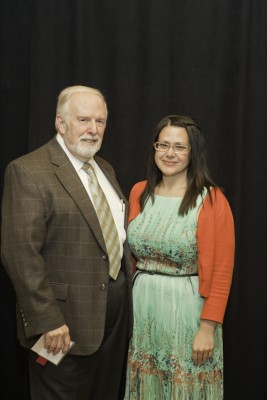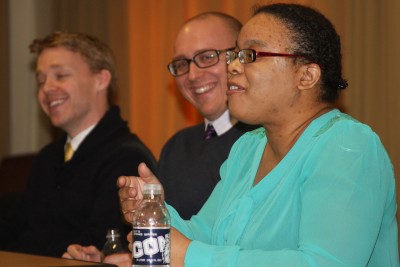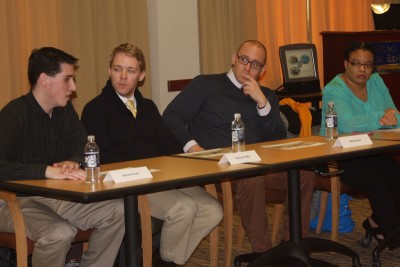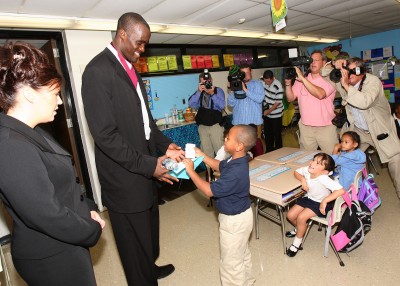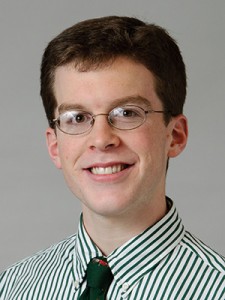Effectively preventing anterior cruciate ligament (ACL) injuries is a critical focus of sports medicine, because ACL injuries often require surgery, followed by an extensive period of rehabilitation, there are high-rates of re-injury to the ACL, which keeps the knee stable, and because ACL injuries often lead to the early development of osteoarthritis.
Recent research studies have determined significant risk factors for ACL injury and suggest that exercise-based interventions help to prevent such injury, but pressing questions remain.
Assistant Professor of Kinesiology Lindsay DiStefano, a new Center for Health, Intervention, and Prevention (CHIP) Principal Investigator (PI), recently was awarded a one-year grant from the National Athletic Trainer’s Association (NATA) Research and Education Foundation (REF) to implement a lower-extremity injury prevention intervention in a high-risk population – nearly 1,200 incoming United States Military Academy (USMA) cadets.
Specifically, Dr. DiStefano, who is also a faculty member in the Neag School of Education, is in the process of determining if a single dose of such an intervention is sufficient and if a “train the trainers” approach could allow for the effective and widespread dissemination of lower-extremity injury prevention programs.
“Can the intervention be delivered one time, like a vaccine, with the effects sustained over time, or does it need to be repeated every season or year?” asked Dr. DiStefano. The intervention typically lasts between six and eight weeks, or an entire sports season, she said.
Dr. DiStefano began working with USMA as a University of North Carolina doctoral student.
She was part of the research team that conducted JUMP_ACL, an R01 clinical trial to determine risk factors for ACL injury, from 2004 to 2009. Involving more than 6,000 cadets from three major U.S. service academies (U.S. Military Academy, U.S. Naval Academy, and U.S. Air Force Academy), it remains to date one of the largest prospective sports medicine studies ever conducted, Dr. DiStefano said. This large study led to the development of the evidence-based injury prevention program currently being evaluated.
Since 2010, Dr. DiStefano has been studying the effectiveness of the lower-extremity injury prevention program for ACL injuries and for stress fractures. Her research team has shown preliminary success reducing these injury rates and modifying risk factors associated with ACL injury.
This past summer, when her new NATA REF grant began, Dr. DiStefano’s research team implemented the 10-minute neuromuscular intervention, comprised of balance, plyometric, and strengthening exercises, approximately three times a week during the cadets’ six-week summer training.
Delivered as a warm-up before their physical training, the intervention is designed to help the cadets improve the way they control their bodies while performing various tasks, Dr. DiStefano said. Her research team taught half the cadets in the study how to decelerate their bodies more efficiently, how to land more softly, how to help their bodies absorb the force of landing better, and how to keep their bodies aligned properly with their bases of support, she said.
The other half of the cadets make up the study’s control group, which was led in a standard warm-up prior to their physical training this summer, Dr. DiStefano said.
The USMA at West Point provides an ideal setting for this study for several reasons, Dr. DiStefano said. Because of the amount and intensity of their physical activity, the cadets are at increased risk for ACL and other lower-extremity injuries. For instance, every cadet must participate in an organized sport in addition to their basic physical training. The military setting also offers Dr. DiStefano’s research team advantages in that they are working with a controlled active population and they are part of a closed medical system, she said.
To evaluate the effectiveness of the intervention over time, Dr. DiStefano returned to West Point in October and December to collect follow-up measurements. She returned two more times, in March and again in May, collecting more data for the time series panel study.
Her research team uses a standardized test to collect its follow-up data – having cadets jump off a platform onto a force plate they put into the ground.
“If a cadet just stands on the force plate, it measures his or her weight,” Dr. DiStefano said. “But, if he or she jumps on it, it gives more information – the force with which the cadets land, the angle of their landing, and how fast the force is absorbed.”
The research team also is video-taping the cadets jumping onto the force plate, which, combined with the force plate data, improves the ability to understand how the cadets are controlling their bodies.
“This study is novel in that it is simultaneously collecting injury data and risk factor data,” Dr. DiStefano said. “We’ll not only be able to tell if the cadets’ rates of injuries are reduced – we’ll be able to see if those reductions in injuries are because of changes in the way an individual moves.”
The other key component of Dr. DiStefano’s study is determining the best way to disseminate an effective lower-extremity injury prevention program.
The program was designed to be delivered as a 10-minute warm-up routine with dissemination in mind.
“The amount of time the intervention takes to implement is key to its successful dissemination, particularly in a military academy setting, where cadets have scheduled activities most minutes of the day,” Dr. DiStefano said. This is also true when working with sports teams where every minute of practice is considered critical, she added.
Training people to implement the intervention effectively is another critical piece of its successful dissemination, she said.
During the summer, Dr. DiStefano’s team trained the cadre at USMA, the upper-class cadets who orient the incoming cadets, how to implement the intervention during their warm-up exercises.
Half of the incoming cadets who received the intervention had their warm-ups led by the cadre while the other half had their warm-ups led by members of Dr. DiStefano’s research team. This will allow the researchers to determine if the cadre implemented the intervention correctly and the “train the trainers” approach is a viable model for future dissemination of the intervention.
In addition to the NATA REF funding, this study also has been supported by a University of Connecticut Faculty Large Grant, an internal grant at the Uniformed Services University of Health Sciences in Bethesda, Md., the American Medical Society for Sports Medicine, and the Department of Defense.
Dr. DiStefano’s research team includes investigators from USMA, University of North Carolina at Chapel Hill, and the Uniformed Services University of Health Sciences.
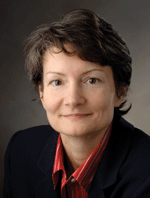 Dorothea Anagnostopoulos, Ph.D., brings proven leadership and extensive experience working with educators in culturally and linguistically complex school systems to her new role as executive director of Teacher Education at UConn’s Neag School of Education.
Dorothea Anagnostopoulos, Ph.D., brings proven leadership and extensive experience working with educators in culturally and linguistically complex school systems to her new role as executive director of Teacher Education at UConn’s Neag School of Education.